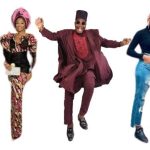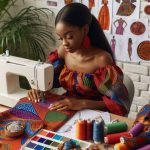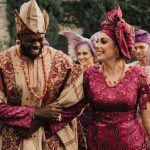Weddings in Nigeria are an affair like no other. From the vibrancy of the traditional rites to the lavish receptions, every wedding is steeped in culture, pride, and deep social significance. Among all the roles played by various participants in a Nigerian wedding, one role stands out for its mix of responsibility, friendship, and support—the role of the best man.
The position of best man in a Nigerian wedding isn’t just ceremonial or symbolic. The best man is a cornerstone in the entire process, not only before and during the wedding but long after the couple has tied the knot. In the Nigerian context, where weddings are seen as communal affairs that involve extended families, friends, and even the wider community, the best man’s role takes on a broader and more significant function.
A Pillar of Support for the Groom
First and foremost, the best man is the groom’s right-hand man. Nigerian weddings, whether traditional, religious, or civil, are often elaborate and can be quite stressful for the groom. From coordinating the engagement and wedding parties to ensuring that all plans go off without a hitch, the groom can often feel overwhelmed.
In these moments, the best man steps in as a buffer. His primary job is to ensure that the groom remains calm, organized, and focused. From as early as the proposal phase, the best man can be called upon to help with planning the proposal, choosing the engagement ring, and offering advice on how to approach the bride’s family—an important step in Nigerian culture.
Traditional Wedding Roles and Expectations
In many Nigerian traditional weddings, the best man is often referred to as the groom’s “right hand.” This is symbolic of the closeness and trust shared between the groom and his chosen best man. Nigeria’s various ethnic groups—Yoruba, Igbo, Hausa, Efik, Edo, and more—each have distinct traditional wedding customs, but across all tribes, the best man’s duties are relatively similar.
1. Yoruba Traditional Wedding
For the Yoruba people, the traditional wedding ceremony, or Engagement, is as important as the church wedding itself. Here, the best man (often called the Oko Iyawo’s friend) plays a key role in helping the groom navigate the ceremonial processes. From presenting the groom’s family at the Ìdána (introduction ceremony) to liaising with the bride’s family on financial expectations such as the bride price, the best man helps smoothen the cultural formalities that precede the wedding. He is also expected to help coordinate the groom’s entrance, a spectacle that includes dancing and vibrant fanfare.
2. Igbo Traditional Wedding
In Igbo culture, the traditional wedding, or Igba Nkwu, is a central feature of the union. The best man is referred to as the Umu Nna. His role during the ceremony involves standing by the groom during the bride’s wine carrying ceremony. When the bride presents wine to the groom as a symbol of acceptance, the best man ensures that everything runs smoothly. He may also handle logistics like organizing the groom’s aso ebi (customized wedding attire) for his friends, providing moral support, and ensuring that the groom meets all financial obligations as requested by the bride’s family.
3. Hausa Traditional Wedding
In Northern Nigerian Hausa weddings, the best man’s responsibilities are centered around Islamic customs and traditional Hausa practices. The groom’s Sarkin Yanka, the best man, assists the groom in paying the sadaki (bride price) and makes sure that all the requirements under Islamic law are fulfilled. He ensures that the walimah (wedding feast) is well-organized and that the guests are properly entertained.
The Modern Nigerian Wedding
In today’s world, many Nigerian couples opt for a combination of traditional and modern weddings. The church or civil wedding ceremony is where the role of the best man becomes more familiar to those acquainted with Western-style weddings, but with a Nigerian twist.
1. Pre-Wedding Planning
The best man is responsible for assisting the groom with various pre-wedding activities. This could include everything from helping choose the wedding venue to coordinating with wedding planners, photographers, and caterers. The Nigerian best man often serves as a point of contact between vendors and the groom, making sure that payments are made and timelines are adhered to.
He also plays a major role in organizing the bachelor party, a time for the groom and his male friends to celebrate the upcoming marriage. In Nigeria, bachelor parties are usually grand events that involve parties, weekend getaways, or fun road trips with the groomsmen. The best man ensures the event is memorable while maintaining order so that it doesn’t get out of control.
2. On the Wedding Day
The wedding day is where the best man shines the most. From coordinating the groom’s outfit and making sure all attire and accessories (like the groom’s tie, cufflinks, and pocket square) are in place, to ensuring the groom is mentally and emotionally prepared, the best man’s duties are immense. He serves as a calming presence, ensuring that nerves don’t get the better of the groom.
A significant responsibility of the best man is to hold on to the wedding rings until the moment they are needed. In Nigerian weddings, whether during the exchange of vows in a church or registry, the best man is expected to present the rings to the couple when the time comes, making sure this critical moment goes off flawlessly.
He also ensures that transportation arrangements for the groom, his family, and the wedding party are smooth. This might involve supervising the wedding cars, organizing buses for guests, or coordinating with a driver to ensure everyone arrives at the reception venue on time.
Speech and Toasts
In Nigerian weddings, the best man often gives one of the most important speeches at the reception. This speech is not just an opportunity to talk about the groom and their friendship, but it is also an opportunity to bless the union. Traditionally, the speech includes well wishes for the couple, words of wisdom about marriage, and expressions of joy and gratitude for being part of the ceremony.
Many Nigerian best men infuse humor, personal stories, and sometimes even native proverbs to add a cultural flair to their speech. The role of the best man in this regard is to encourage and uplift the newlyweds while entertaining the guests.
Financial Contributions
In Nigeria, where weddings are not just a union of two individuals but a celebration of two families coming together, the financial expectations on the groom and his best man can be significant. It is not uncommon for the best man to contribute financially towards aspects of the wedding, particularly the bridal party outfits or wedding logistics.
Moreover, some Nigerian best men assist with paying for the venue or contributing to the food and drinks budget. It is part of the communal spirit that defines Nigerian society, where friends and family pull together to create a memorable day for the couple.
Cultural Representation
Being a best man in a Nigerian wedding also means serving as a representative of the groom’s family and culture. Whether it is ensuring that the traditional rites are properly observed or making sure that the groom’s attire reflects his heritage, the best man plays a key role in maintaining the cultural integrity of the wedding.
In Nigerian weddings, every aspect of the ceremony—from the outfits to the decorations and music—is a reflection of the couple’s cultural background. The best man often liaises with the groom’s family to ensure that all the cultural elements are properly included in the wedding.
Post-Wedding Responsibilities
After the wedding, the best man’s job isn’t necessarily over. In Nigerian culture, he continues to play a supportive role, ensuring that the couple settles into their new life together. This might involve offering advice to the groom on married life, helping the couple with post-wedding tasks like organizing the honeymoon, and ensuring that any outstanding financial obligations are settled.
Some best men even help the couple move into their new home, provide counsel in the early days of marriage, or serve as a mediator should any marital issues arise. The best man in a Nigerian wedding is, in many ways, expected to be the groom’s lifelong ally.
Conclusion
In Nigeria, weddings are not just events; they are festivals that celebrate family, culture, and community. The best man, though often viewed as just a supportive figure to the groom, holds a position of great significance. His role encompasses everything from logistical planning to emotional support, from representing the groom’s family and culture to ensuring that the marriage ceremony goes smoothly.
The responsibilities of a Nigerian best man extend far beyond the wedding day. He is a symbol of friendship, loyalty, and commitment, not just to the groom but to the success of the marriage itself. And as Nigerian weddings continue to evolve, blending the rich traditions of the past with modern-day influences, the role of the best man remains as crucial and cherished as ever.
Being chosen as the best man is an honor, but it is also a call to action—a call to be the backbone of one of the most important days in the life of your friend and brother. In Nigeria, where community is everything, the best man embodies the strength of that bond, ensuring that the wedding day is a true celebration of love, family, and culture.







Leave a Reply